By S. Adam Crawley, Craig A. Young, and Lisa Patrick on behalf of the CLA Master Class Committee
Starting in 1994, the Children's Literature Assembly (CLA) has sponsored a Master Class at the annual NCTE Convention. This session provides K-12 teachers and teacher educators, as well as other members of the organization, the opportunity to gain insight about the use of diverse children's literature through interactions with leading scholars, authors, and illustrators in the field.
The 28th annual Master Class is titled “Reading Queerness at the Intersections: Using LGBTQ-Inclusive Literature to Move Toward Equity, Justice, and Antiracist Teaching.” This year’s session will take place on Saturday, November 20th from 5:15-6:30 p.m. (Eastern) in the virtual platform of NCTE’s annual meeting (1). The 2021 Master Class will include a presentation, panel, and discussion with the following esteemed teacher-educators, authors, and illustrators of children’s literature: 2021 CLA Master Class Contributors
Dr. Laura Jiménez will be the discussant for the 2021 Master Class. Jiménez is a Lecturer of children’s and YA literature courses and Associate Dean for Equity, Diversity, and Inclusion in the Wheelock College of Education and Human Development at Boston University. In addition to her scholarship in The Reading Teacher, Journal of Literacy Research, Journal of Lesbian Studies, and Teaching and Teacher Education among other outlets, Jiménez is a founding advisory board member of the open-access journal Research on Diversity in Youth Literature and the author of the blog “Booktoss” in which she writes critical response to children’s and young adult literature. This year, Jiménez was awarded the Divergent Award for Excellence in Literacy Advocacy given by the Initiative for Literacy in a Digital Age.
The 2021 Master Class
The 2021 Master Class will focus on how children's literature can provide vital depictions of – and be used to facilitate important conversations about - intersectionality (Crenshaw, 1991), specifically where race, ethnicity, sexual orientation, and/or gender expression and identity meet and further marginalize. In this session, we bring together scholars, authors, and illustrators of books for young readers whose knowledge, experiences, and published works provide avenues for considering literature’s nuanced portrayal of individuals’ myriad identities. Moreover, both in viewing the presentation and participating in the synchronous dialogue, attendees will have the opportunity to engage in and reflect on conversations that allow them to create paths toward equity, justice, and antiracist teaching in their professional lives.
Participating in the 2021 Master Class will help attendees gauge their knowledge of and comfort with using LGBTQ-inclusive literature in classrooms. Additionally, attendees will learn about the affordances of children's literature that presents stories showing the intersections of diverse identities, especially the voices of individuals whose race, ethnicity, sexual orientation, and/or gender identity or expression has been – and continues to be – used to censor or erase them. The Master Class speakers and co-chairs hope attendees leave the session with a reaffirmed and deeper understanding 1) of the need for inclusive representations of marginalized communities and 2) that any move toward equity, justice, and antiracist teaching requires being more inclusive of - and attentive to - intersectional identities.
References:
Crenshaw, K. (1991). Mapping the margins: Intersectionality, identity politics, and violence against women of color. Stanford Law Review, 43(6), 1241-1299.
(1) The 2021 Master Class is designated by NCTE to be a “pre-recorded/scheduled” format. The recording will be shown in the conference platform at the scheduled time. Following the recording, there will be opportunities for live discussion between presenters and attendees.
S. Adam Crawley (he/him) is an Assistant Professor of Language and Literacy Studies at The University of Texas at Austin. His current roles with CLA include serving as a Board Member (2021-2023) and Master Class Co-Chair (2020-2022). In addition, he is the secretary of NCTE’s Genders and Sexualities Equalities Alliance (GSEA).
Craig A. Young (he/him) is a Professor of Teaching & Learning at Bloomsburg University of PA. He is currently serving on the CLA Diversity, Equity, and Inclusivity Committee, as well as co-chairing the 2021 CLA Master Class. Lisa Patrick (she/her) is the Marie Clay Endowed Chair in Reading Recovery and Early Literacy at The Ohio State University. She is a CLA Board Member and Master Class Co-Chair.
FOR CLA MEMBERS
CLA Board of Directors Elections
By Jared S. CrossleyAlthough the fight for increased diversity in children’s literature has been going on for decades, there has been a recent surge in attention to this need since 2014 and the creation of the We Need Diverse Books (WNDB) campaign. The website for WNDB states that they advocate for “essential changes in the publishing industry to produce and promote literature that reflects and honors the lives of all young people” (We Need Diverse Books, n.d.), and their definition of diversity extends beyond diversity in sexual orientation, gender, and race, but also includes disability. According to the U.S. Department of Education (2019) there were 7 Million students in 2017-2018 who received special education services, accounting for 14 percent of all public school students. The amount of time these students spend inside a general education classroom has been gradually increasing over the last twenty years. This contributes to the growing need for educators to use texts with positive and accurate disability portrayals as part of their reading instruction in the general education classroom (Collins, Wagner & Meadows, 2018). Children with disabilities need to be able to see themselves in the books they read, and their classmates can also benefit, gaining empathy and understanding, by reading about children with similar disabilities. Dr. Rudine Sims Bishop (1990) wrote about how books can serve as windows, “offering views of worlds that may be real or imagined, familiar or strange” (p. 1). They can also serve as mirrors, which reflect our own experiences, and “in that reflection we can see our own lives and experiences as part of the larger human experience” (p. 1). It is very important that all children see themselves reflected in the books they read. However, many children who have disabilities or are racial minorities often don’t see themselves in the books that are available to them. Bishop stated: "When children cannot find themselves reflected in the books they read, or when the images are distorted, negative, or laughable, they learn a powerful lesson about how they are devalued in the society of which they are a part. Our classrooms need to be places where all the children from all the cultures that make up the salad bowl of American society can find their mirrors" -Rudine Sims Bishop Educators should make it a priority to provide all of the children in their classrooms books that serve as mirrors, as well as books that are windows into cultures that are not familiar to their students’ lived experiences. For the past four years, I have been privileged to serve on USBBY’s Outstanding Books for Young People with Disabilities committee. During that time I have gained new perspectives and learned more information about various disabilities and differences. One type of book that often gets grouped into the disability category is books that contain a portrayal of deafness. It has been debated if deafness should be considered a disability (Harvey, 2008; Lane, 2002) with varying opinions for and against the consideration of deafness as a disability. However, regardless of whether or not it is a disability, we need positive portrayals of deafness in children’s literature that can serve as mirrors for children who are deaf, and windows for children who are hearing. Over the past few years there have been a number of excellent middle-grade books that center a child who is deaf. In this post, I want to highlight three titles that I thought were exceptional portrayals.
Show Me a Sign
Show Me a Sign by Ann Clare LeZotte (2020) tells the story of Mary, a young girl growing up deaf in the early 1800’s on the island of Martha’s Vineyard. As part of a Deaf colony on the island, Mary has always felt safe and protected. However, all of this is threatened by the appearance of a young scientist who is bound and determined to find the cause of the island’s deafness so he can cure this “infirmity”. Soon Mary finds herself in harm's way as this scientist takes her as a “live specimen” in order to more closely study her deafness. The sequel, Set Me Free, is set to be released September 21, 2021.
References Bishop, R.S. (1990). Windows, mirrors, and sliding glass doors. Perspectives, 6, ix-xi. Collins, K. M., Wagner, M. O., & Meadows, J. (2018). Every story matters: Disability studies in the literacy classroom. Language Arts, 96(2), 13. Harvey, E. R. (2008). Deafness: A disability or a difference. Health L. & Pol'y, 2, 42. Lane, H. (2002). Do deaf people have a disability?. Sign language studies, 2(4), 356-379. U.S. Department of Education. (2019). Children and youth with disabilities. Retrieved from https://nces.ed.gov/programs/coe/indicator_cgg.asp We Need Diverse Books. (n.d.). About Us. WNDB. Children’s Books Frost, H. (2020). All He Knew. New York, NY: Farrar Straus and Giroux. Kelly, L. (2019). Song for a Whale. New York, NY: Delacorte Press. LeZotte, A.C. (2020). Show Me a Sign. New York, NY: Scholastic Press. Jared S. Crossley is a Ph.D. student at The Ohio State University studying Literature for Children and Young Adults. He is a former 4th- and 5th-grade teacher, and currently teaches children's literature courses at Ohio State. He is the 2020-2021 chair of the Outstanding Books for Young People with Disabilities committee (USBBY). |
Authors:
|
CLA
About CLA
|
Journal of Children's Literature
Write for JCL
|
ResourcesCLA-sponsored NCTE Position Statements
|
Members-Only Content
CLA Video Library
|
© COPYRIGHT 2018.
ALL RIGHTS RESERVED |

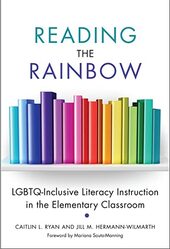
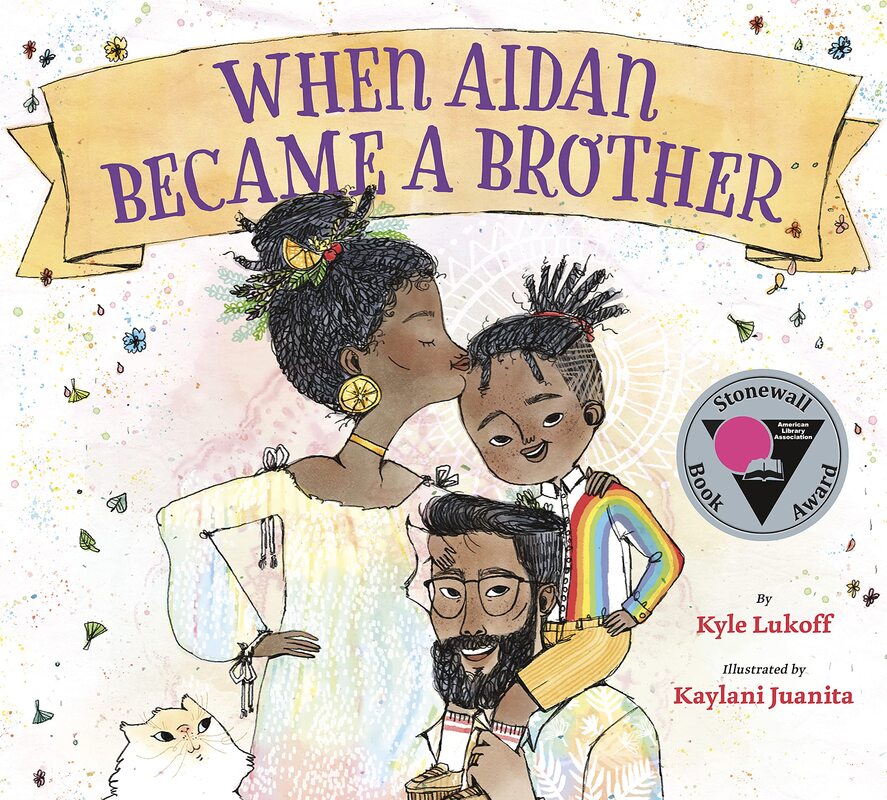
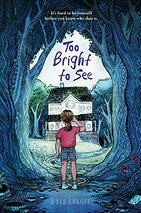
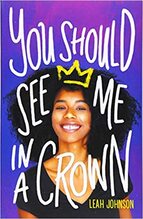
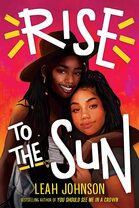
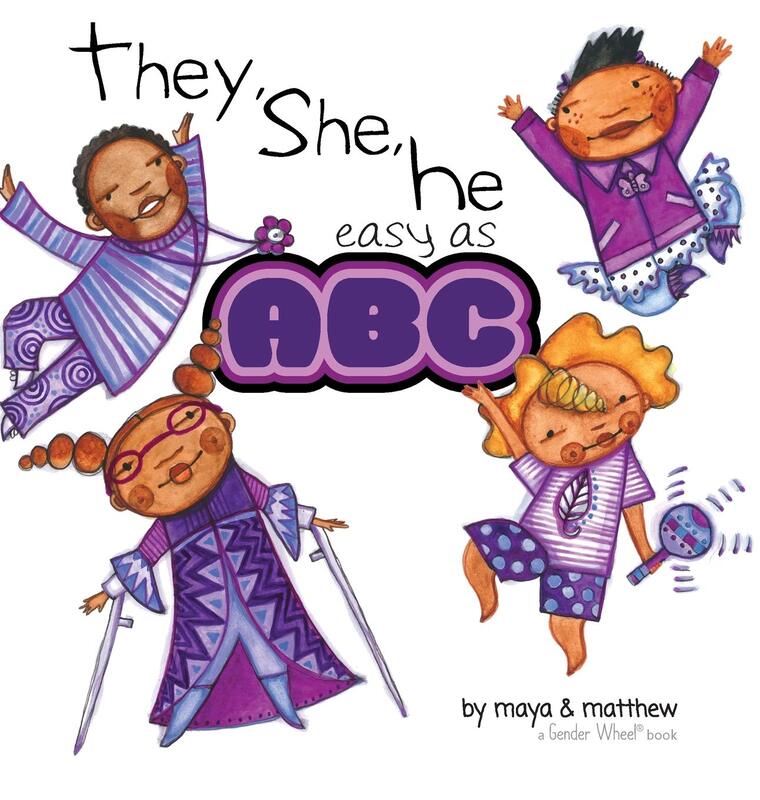
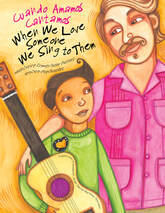
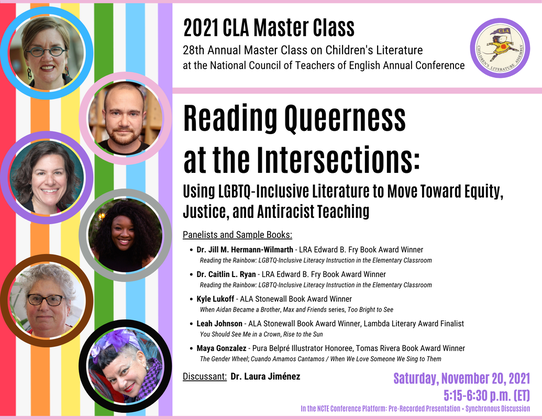
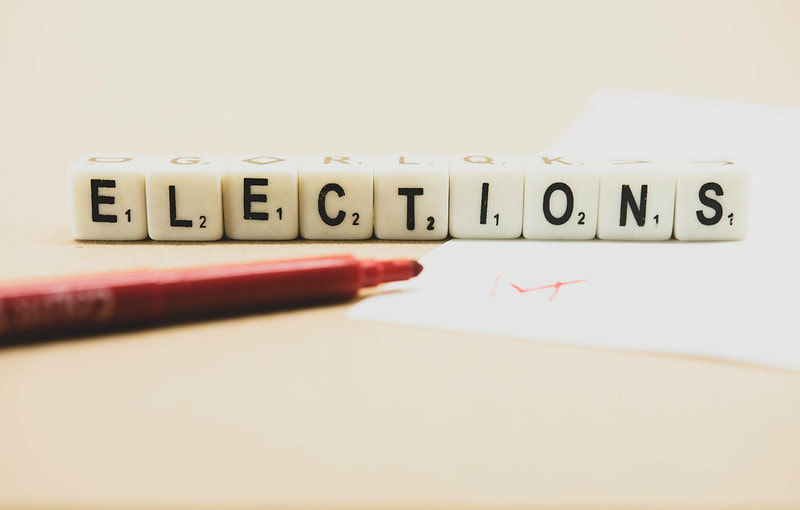
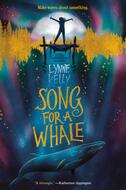
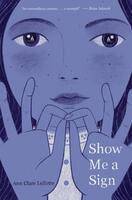
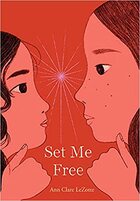
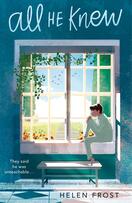
 RSS Feed
RSS Feed